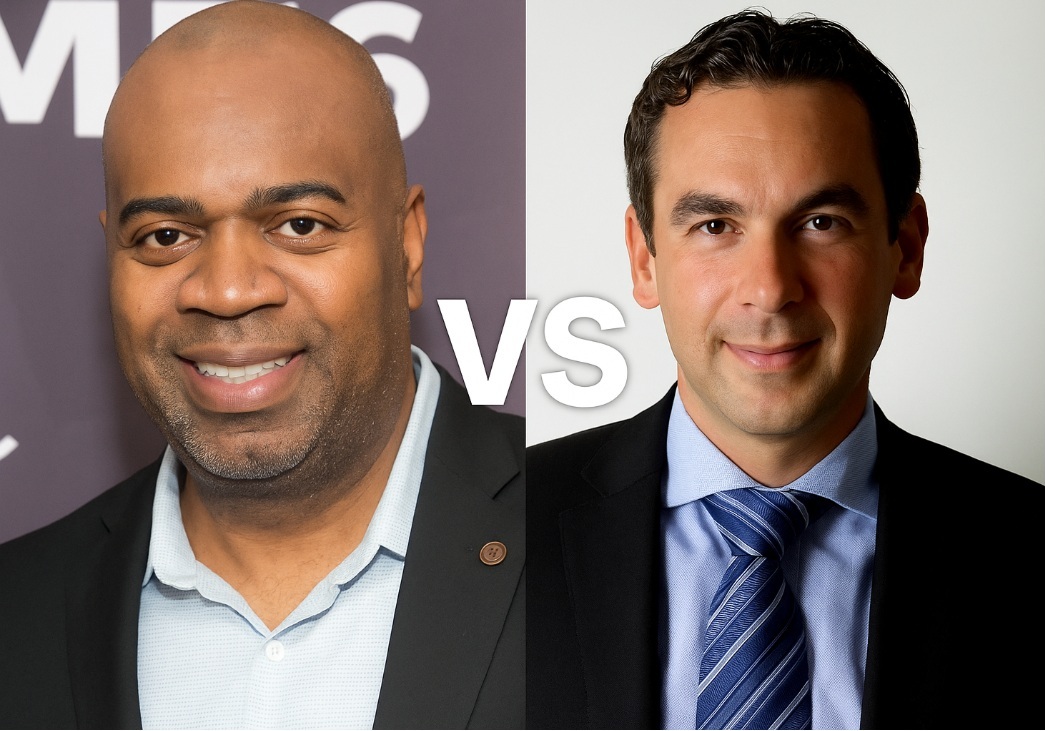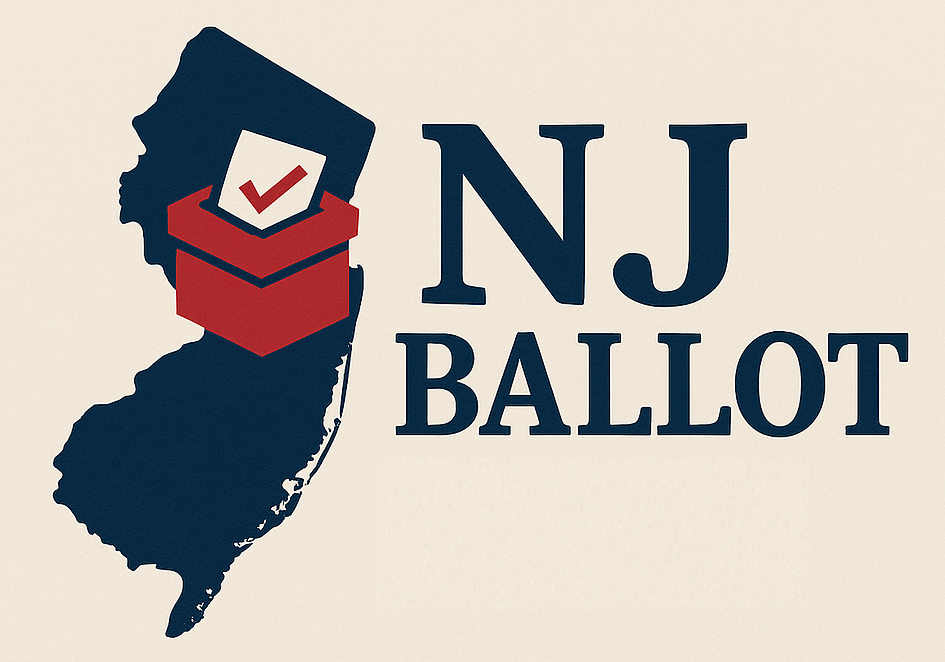As New Jersey approaches the 2025 gubernatorial election, two powerhouse mayors from the state’s largest cities are squaring off for the Democratic nomination: Ras Baraka of Newark and Steven Fulop of Jersey City. Both have built impressive records steering their urban hubs through growth and challenges, but how do they stack up in a head-to-head comparison? This article pits them against each other, focusing on their leadership, cost of living records, crime management, and political strengths as they vie to become New Jersey’s next governor.
Round 1: The Contenders and Their Cities
Ras Baraka – Newark’s Progressive Champion
Tenure: Mayor of Newark since 2014
Background: Former educator and principal, son of poet-activist Amiri Baraka
City Snapshot: Newark, New Jersey’s largest city (pop. ~311,000), known for its industrial roots and ongoing revitalization
Baraka has positioned Newark as a model of progressive urban governance, emphasizing affordable housing, education reform, and immigrant rights.
Steven Fulop – Jersey City’s Development Dynamo
Tenure: Mayor of Jersey City since 2013
Background: Former Marine, ex-Goldman Sachs analyst
City Snapshot: Jersey City (pop. ~292,000), a booming hub across the Hudson from Manhattan, marked by rapid development
Fulop has overseen Jersey City’s transformation into a modern urban powerhouse, prioritizing infrastructure, public safety, and economic growth.
Winner: Tie – Both bring distinct strengths and big-city experience to the table.
Round 2: Cost of Living – Who’s Keeping It Affordable?
Cost of living is a make-or-break issue for New Jersey voters. Let’s break down how Baraka and Fulop have managed it in their cities.
Housing Costs
Rent Increases (2015-2024)
Newark (Baraka): +51% ($1,269 to $1,916 for a 2-bedroom)
Jersey City (Fulop): +75% ($1,315 to $2,299)
Edge: Baraka – Newark’s slower rent hikes signal stronger affordability measures.
Property Tax Increases
Newark: +21% ($6,096 to $7,387)
Jersey City: +57% ($6,773 to $10,624)
Edge: Baraka – Lower tax hikes ease the burden on homeowners.
Home Value Growth
Newark: +136% ($182,000 to $429,876)
Jersey City: +115% ($329,000 to $706,000)
Edge: Baraka – Higher growth reflects Newark’s recovery, though Jersey City’s pricier homes favor wealthier residents.
Baraka’s policies—like zoning for affordable units—have kept housing costs in check, while Fulop’s development boom has driven steeper increases.
Other Living Expenses
Fuel, Food, Utilities, Healthcare: Both cities faced similar rises (e.g., food +27%, healthcare premiums +45%) due to regional trends.
Edge: Tie – Neither mayor controls these external factors.
Winner: Baraka – His tighter grip on housing affordability gives him the upper hand.
Round 3: Crime – Who’s Making Streets Safer?
Public safety is a top priority for voters, and both mayors have tackled crime with distinct strategies. Let’s compare their records.
Crime Trends and Strategies
Newark (Baraka):
Homicides: Dropped 23% in 2024, reaching a 60-year low in 2022 with a 15% decrease. By Q1 2025, homicides were down another 27%.
Shootings: Non-fatal shootings fell 9% in 2024, after a 35% drop in 2022.
Violent Crime: Overall violent crime rose 9% in 2024, driven by increases in robberies and aggravated assaults, though Q1 2025 showed a 39% decrease in violent crime, largely due to fewer robberies.
Approach: Baraka treats crime as a public health issue, collaborating with the Office of Violence Prevention and Trauma Recovery (OVPTR). He focuses on community engagement, using "credible messengers" like social workers and clergy, and targets high-crime areas with increased patrols.
Jersey City (Fulop):
Homicides: Decreased 40% in 2024, hitting a historic low of 6 by December 2024, down from 24 a decade ago—a 75% drop.
Shootings: Fell 45% in 2024, with a consistent decline (e.g., 47 in 2023 vs. 52 in 2022).
Violent Crime: Robberies, burglaries, and motor vehicle thefts also dropped significantly (e.g., motor vehicle theft down from 738 in 2022 to 629 in 2023).
Approach: Fulop emphasizes community policing, diversity in hiring (75% of new officers are minorities), and investments in technology like video surveillance. A new Public Safety De-Escalation and Training Center opened in 2024, and partnerships with state and federal agencies led to a 100% homicide solve rate in 2023.
Analysis
Baraka has made strides in reducing homicides and shootings, but the uptick in overall violent crime in 2024—particularly robberies targeting Newark’s migrant population—raises concerns. His public health approach is innovative, but it hasn’t fully curbed all violent crime trends. Fulop, meanwhile, has delivered more consistent declines across all crime categories, with a standout homicide reduction. His tech-driven, community-focused strategy seems to have yielded steadier results.
Winner: Fulop – Jersey City’s broader and more consistent crime reductions give him the edge.
Round 4: Political Prowess – Who’s Got the Edge Statewide?
New Jersey’s diverse electorate demands candidates who can win over urban centers, suburbs, and beyond. How do they compare?
Ras Baraka – The People’s Progressive
Name Recognition: 78% of NJ Democrats know him, 43% view him favorably (FDU poll)
Strengths:
Appeals to communities of color and progressive suburbs
Vocal on immigrant rights (e.g., opposing a new immigrant jail)
Education reform focus from his teaching roots
Style: Fiery, grassroots-driven
Steven Fulop – The Polished Reformer
Name Recognition: Lower than Baraka’s, though growing
Strengths:
Progressive wins like minimum wage hikes and transit expansion
Track record of urban development
Style: Pragmatic, business-friendly
Baraka’s broader appeal and higher visibility outshine Fulop’s quieter, development-focused approach.
Winner: Baraka – His statewide resonance gives him a clear advantage.
Final Scorecard
Leadership Experience: Tie
Cost of Living: Baraka
Crime Management: Fulop
Political Appeal: Baraka
The Verdict
Ras Baraka and Steven Fulop are neck-and-neck in this head-to-head matchup. Baraka shines on affordability and political appeal, crucial for working-class voters and the Democratic base. However, Fulop’s stronger record on crime reduction highlights his ability to deliver consistent public safety gains—a top concern for many New Jerseyans. While Baraka edges out slightly with his progressive vision and voter resonance, Fulop’s pragmatic results make him a formidable contender. This race will hinge on whether voters prioritize affordability and charisma or safety and stability.



Definitely NO to Fulup he has single handedly ruined Jersey City by bending to developers and taking their money instead of helping people afford to live here .He will make NJ even more unaffordable#Team Baraka
ReplyJersey City cops and other city employees are almost invisible. We see on social media many times that cops do not try to solve problems that residents have. A dynamic mayor would insist that city employees respond to residents, not "that's not my problem--call traffic control, or whatever." Traffic and parking show a HUGE disregard for the rules and regulations. You never see a cop unless they are standing someplace reading their cell phones.
ReplyThat’s 100% true. I can go around and make a video about that. Maybe I should
This seems a bit unfair, when Newark is a National Model in crime reduction! With the NCST That all has been under the leadership of Mayor Ras Baraka
ReplyCorrect Newark has made great strides to reduce crime but Jersey City still barely pulled through with a win in that topic. It doesn’t take away from Ras Baraka. He’s done a hell of a Job.
Jersey city crime stats need to be taken with a large grain of salt. Fulop works hard to obscure the numbers, cops are here are absolute do-nothings.
ReplyToo much noise, taxes also high marijuana smell all over , that was approve for medical use.
Reply